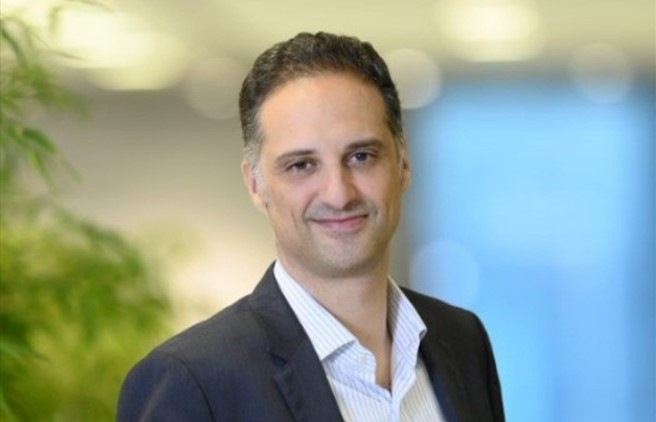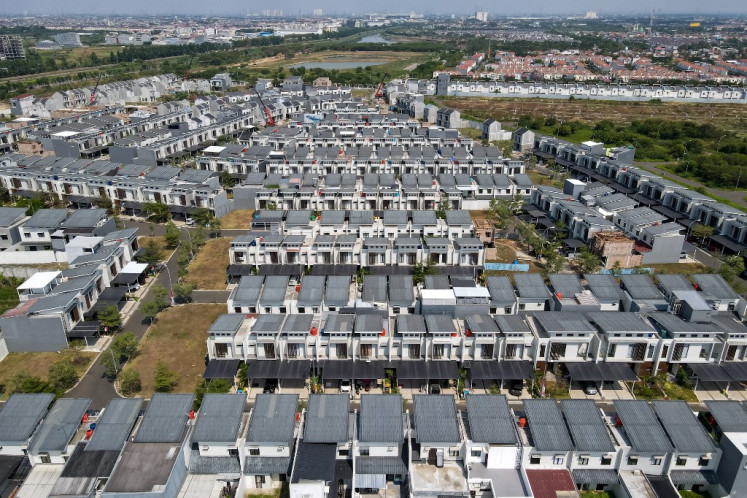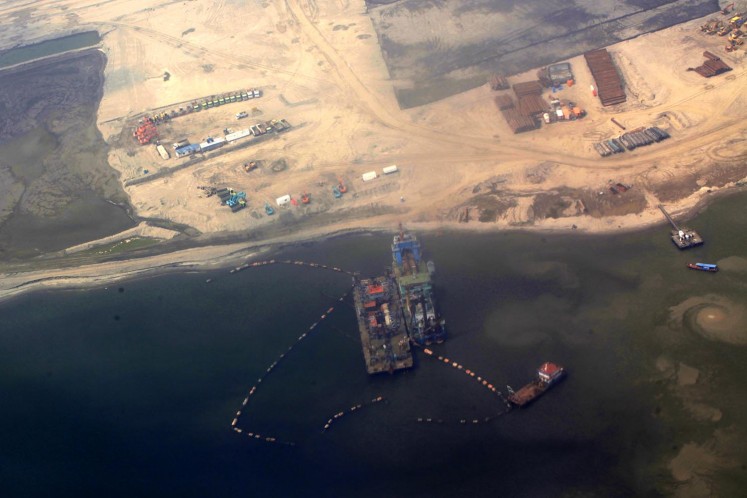Popular Reads
Top Results
Can't find what you're looking for?
View all search resultsPopular Reads
Top Results
Can't find what you're looking for?
View all search resultsDigital banks urged to specialize
After rapid growth in recent years, the digital-banking business is facing challenges in sustaining its business model through difficult times.
Change text size
Gift Premium Articles
to Anyone

A
fter rapid growth in recent years, the digital-banking business is facing challenges in sustaining its business model through difficult times. Juan Madera Jimenez, financial services sector (FSS) ASEAN leader at IBM Consulting, spoke with The Jakarta Post’s Vincent Fabian Thomas about the future of digital banks in the region.
Question: What is the future of digital banking in APAC, especially ASEAN?
Answer: There are different approaches for different types.
I will say that, in APAC, we have really good examples of digital banks that have started from a large … let's say, digital ecosystem, already. I am thinking about Rakuten and Kakao Bank, for example.
They start with a large population, a large customer base, and then they also have a high degree of technological sophistication. And what they do is they make it easier for the customers to become banking clients.
The second type we're seeing emerging is platforms like Grab, GoTo, etc. that are pure platforms, where they have a very interesting mission to support the gig economy, in particularly in Southeast Asia, where there's a very young population [and] a middle class has been developing.
I believe there are significant opportunities in the long-term for these banks to actually make a difference -- not just to thrive as a business, but also to make a difference.
There is a third type, which will be, probably, the smaller and more niche digital banks that will focus on helping a specific sector of the economy -- so it could be SME banking; it could be Islamic banking.
I think as long as they provide a very good service to that small number of clients, they also can play a very important role in the development of the economy.
Simon-Kucher consultancy estimates that currently less than 5 percent of these digital banks have reached the breakeven point. Why is that?
Like any start-ups, profitability is a challenge. It's not guaranteed.
We have examples in APAC -- the neobanks or digital banks that have already failed. There are examples, particularly in Europe, of digital banks that are struggling to reach breakeven or to have a path to sustainability.
They could acquire customers, but they [did so] through quite a bit of investment on customer acquisition; then those customers basically just wanted to have a second bank account to deposit a little bit of money, but not really use that account effectively or regularly.
So, customer acquisition didn't translate into a revenue stream.
How much time can we expect digital banks to need to achieve profits?
That is a very difficult question. For example, if we are talking about a digital platform with a large customer base already, typically the path to profitability is faster, so it could be even as quick as two to three years.
In the other cases, where you have to build a bank from scratch, the path to profitability is going to be definitely longer. We're talking about five years to maybe seven years.
At the end of the day, I don't think that is irrelevant, because there is still quite a bit of appetite for investment.
So, the fact is, five or seven years -- I don't think that's necessarily a problem. As long as there is a clear path [toward profitability], the investor’s appetite will be there.
How can digital banks achieve sustainable profitability?
I think what is important is that digital banks and neobanks focus on offering a differentiated service, do it well, have a clear ethos and build that brand over time.
If [they] do a good job [….] they will acquire the trust of customers eventually, particularly in this part of the world, where the middle class is growing [and where] we have several hundred million customers.
There is no reason for banks not to be profitable in the long term. […] My definition of sustainability and thriving as a bank is that you specialize in helping your customers with their needs, like SME banking.
So, there are a number of ways in which that can happen by becoming the best partner for a particular type of client. I think that will ensure that they don't have to acquire the customers just by, you know, investing upfront.
Will there be any rapid increase in mergers and acquisitions as the industry consolidates for banks to sustain themselves?
It's difficult to predict, but I don't see […] a significant increase or [spike in] acquisitions or consolidation.
If banks do perform business in a sound way, they will continue to find capital to support particularly the little banks and neobanks. I think the appetite for investment continues to be there.
However, at some point they need to demonstrate that there is a path to profitability, and as long as they do a good job and show that path, I think all liquidity requirements etc. will be supported.
Will the number of players shrink at some point to an optimal number?
I don't have the formula as to what is the optimal number. I think it's possible, but I don't think that it's going to be a massive collapse in the number of digital banks in the next few years. I think there is still room for growth, particularly in countries like Indonesia.
How do you assess the potential of this industry in the next five years, or maybe 10 years?
I think banking always really depends a lot on the economic growth; so right now, we are in a situation which is a bit difficult to predict.
In the US [United States] and Europe right now, the forecast is not so optimistic over the next few years. I think in Asia, we are or could be a little bit more resilient.
And I think the situation in Indonesia is fantastic, because you have probably the highest number of unicorns […] and future unicorns.
You are going to build a new capital. You have government initiatives that are aiming to develop 100 smart cities in the country. You have significant investment coming in the area of sustainability.
So, all of this makes it a very optimistic outlook in my mind. I'm optimistic by nature, but I really think that I still look at the Indonesia market and financial services in a very bullish way.









